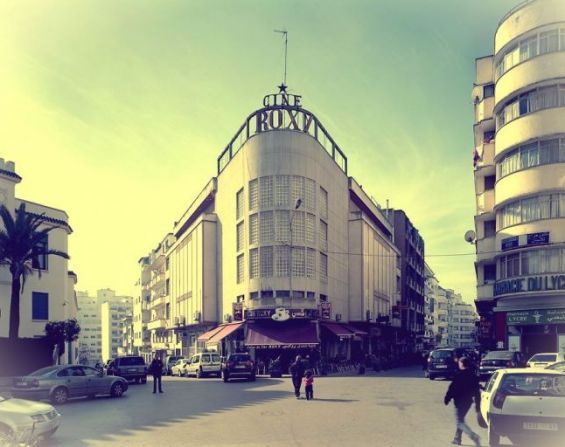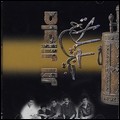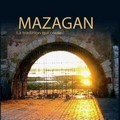Abdeljalil Wahabi has been in the cinema business for over thirty years and has been surrounded by film his whole life. He started going to the movies when he was six years old with his grandfather. In 1985, after finishing his studies, he began working with his father.
Together they opened Cinema Tarik and later Cinema Mabrouk, which have since shut down due to the decline in movie theater attendance in Morocco. In the 1980s, Morocco had around 270 functioning theaters, the number of which has drastically diminished to a more modest number, around 30. Cinema Tarik is one of many theaters whose buildings’ skeletons remain unkempt and serve as evidence of Morocco’s dying movie-going industry.
Abdeljalil and his family bought Cinema Roxy in 2003. The movie theater located in Tangier was initially built as an opera house in 1943, explaining the circular structure of the building and architecture, which was made to accommodate the acoustics and performances. In 1950, the Roxy was converted into a cinema and has survived to be one of the three still-operating movie theaters in Tangier, Abdeljalil told Yabiladi.
When asked why he thinks the cinema industry has diminished so rapidly and extensively, Abdeljalil responded, «there are too many reasons. First, it was the cassettes, then the CDs and now it’s the internet». Abdeljalil and his colleague and friend, Farid Boulaid, work together to promote Cinema Roxy through a variety of means to keep the cinema’s historic doors open.
Make cinema-attending a mainstream thing
But Abdeljalil is trying to make cinema-attending a mainstream thing. «Most people have lost the education of cinema» says Abdeljalil. He and Boulaid combat the cinematic educational absence by working with primary schools to bring children to the Roxy for private screenings and live performances. «We want to make children like cinema. Before, people came to the cinema and, now we have to bring them. That’s the difference», he added.
Cinema Roxy also hosts two film festivals. The Tangier Short Film Festival and the Tangier National Film Festival, both organized by the Centre Cinématographique Marocain (CCM).
Abdeljalil laughs as he recalls his favorite moments at the Roxy. «The best thing is to see too many people in the cinema. It means a lot of money».
When asked what changes he would like to see made in the Moroccan film industry, Abdeljalil expressed the need for more funding for cinemas. The CCM currently has funds in place to help pay for movie theater renovations and improvements. The public body will pay for 10% of a new projector and 50% for renovations, but cinemas must apply for the renovation funds. Abdeljalil would like to see more funding in place like this to help keep these open and put towards reviving the movie-going business. Or, in Abdeljalil’s words, «to save the cinema».
Abdeljalil also referenced the influence film can have on Moroccan society. He amusedly remembers how people began dressing like John Travolta when Saturday Night Fever and Grease premiered in Morocco. However, Abdeljalil said that after practically a lifetime surrounded in cinema, «the only movie I want to see now is my youngest son grow up».





 chargement...
chargement...













